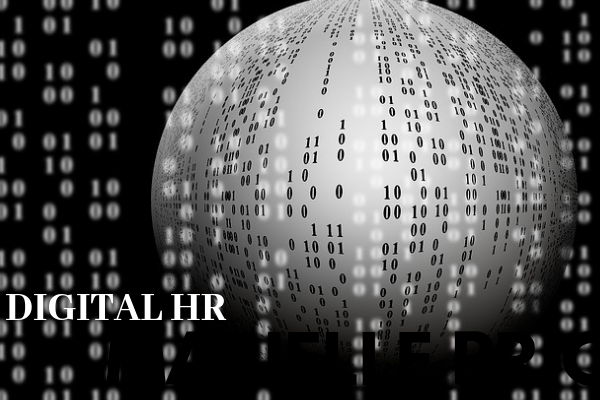History is being created as information technology continues to transform business functions. The last two years have witnessed an accelerated shift towards digitisation. Not only big companies, but even small ones have contributed towards it.
In the Indian context, digitisation of business is happening at par with the West. We are very much collaborating with them in taking this digital revolution forward.
While all the functions of a company are seeing disruption, HR is taking the lead. Every aspect of the function is incorporating technology to improve employee experience. Thus, HR can focus more on taking up a strategic role for driving business goals.
How is HR benefitting from digitisation?
Plays a strategic role in business: Today, HR is playing a more strategic role in business by making reputed talent available to an organisation. The talent pool of a company is what differentiates it as a successful one or otherwise. Data- led decisions will enable HR to compete more efficiently for global talents.
There are many advanced talent management systems for automating employee life cycle management – hiring till retiring. HR is embracing automation in its processes to drive business objectives through digital tools.
A right integrated human capital management (HCM) system will help organizations in transforming their HR processes so that HR can reinvent itself to play a more strategic role for business and not just perform daily administrative work.
Enhances employee experience: Technology solutions provide the HR a better understanding of its people through complex data analysis. A digitally- empowered HR can predict behaviours and aspirations more accurately, and this will help them design better employee experiences— from onboarding, to offering learning and development programmes. Based on data analytics, the HR can deliver customised solutions tailored to individual strengths, which is more meaningful.
Facilitates precise and accurate decision making: The primary benefit of automation in the HR function is the improvement in the accuracy of decisions. For instance, digital software can convert attributes to numbers and process large volumes of data instantly for a desired outcome. Not only it is impossible to do it manually but chances of making errors are negligible. For this to happen, HR managers need to make themselves and their teams digitally literate. They need to take ownership and responsibility of their IT assets and fortunately, with so many analytics tools and cloud-based SaaS HCM solutions available, it is quite possible.
The SaaS option is ideally suited for organisations that always want to be on the latest version and take advantage of the latest enhancements and new features.
Ensures positive candidate experience: Finding the right talent will be the most important factor that will enable a company to stay afloat during digital disruption. While companies will compete with each other to attract skilled and agile talent for their organisations, automation in the process will provide them the edge over others by:
• Enhancing candidate experience
• Improving employer branding
• Reducing hiring timelines
• Providing effective onboarding
Lack of communication forms the basis of candidate grievances/dissatisfaction during recruitment. Use of tech tools will help resolve this problem.
If you are interested in a particular candidate, recruitment solution will assist you to process selection faster by generating automated emails. You can personalise these emails with the logo and company colours to reinforce the brand.
Applicant-tracking systems allow recruiters to create and store templates of all the past job requisitions within the system. These can be used repeatedly without the need to create a requisition from scratch every time a new vacancy arises. This not only reduces the error rate but also reduces the workload for recruiters.
Read this free whitepaper to learn how a Winning Candidate Experience Can Help Companies Win the Talent War.
Improves internal communication
Employee feedback is an important factor in establishing the effectiveness of internal communication within an organisation. First, automation should be used to create feedback surveys and data analysis tools should be applied to interpret the same.
Artificial intelligence and robotics are used to create software that help improve communication in the following ways: –
• Live chat – Employees can use this digital interface to participate in live chats and get instant answers to their queries.
• Updates – They can receive important information/news, which the company would like to broadcast instantly.
• Discussion forums – There can be brainstorming for ideas, with certain topics being thrown for discussion.
HR can track and monitor payroll processing, employee attendance, leaves, absence, talent development and labour-law compliance all in one place through automated tools. This, along with powerful analytics and reporting tools, helps them make sense of what they’re tracking.
Here are few examples to show how predictive analysis can help to solve recurring challenges in the HR domain: –
• Only organisations that are truly inclusive will be successful in future. Technology, data and analytics are essential to help us to identify unconscious bias and remove it from the workplace. They will play a key role in changing the mindset of people at the fundamental level.
• By leveraging people analytics, a subset of AI, leaders can create a prospective view that directs how, where and when talent must evolve to meet future business needs. The success of transformation depends on talent thus AI will help to speculate to balance data and emotional intelligence. This will help the leaders to make the right decisions.
• To identify the right leaders and plan their development path, it is critical that leadership development programs now incorporate highly sophisticated self-assessment platforms and other cutting-edge analytical tools.
HR can partner with IT consultants and build on their expertise in talent management to onboard older generations into digital processes, and to meet millennials’ expectations. HR plays a decisive role in capturing and transferring expertise within the company through AI. The challenge for HR leaders is to shift their view of AI from an enabler of speed and efficiency to a key that will unleash human potential.



